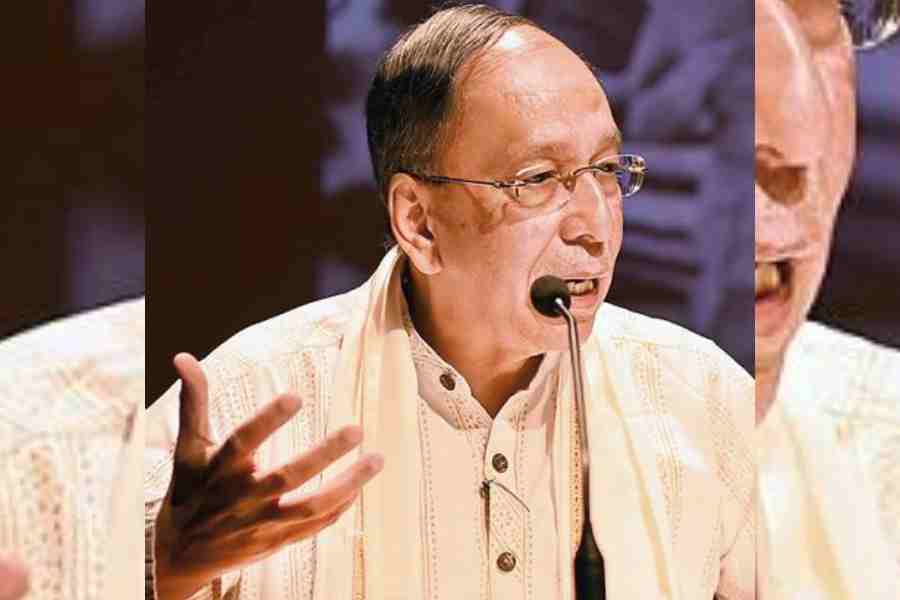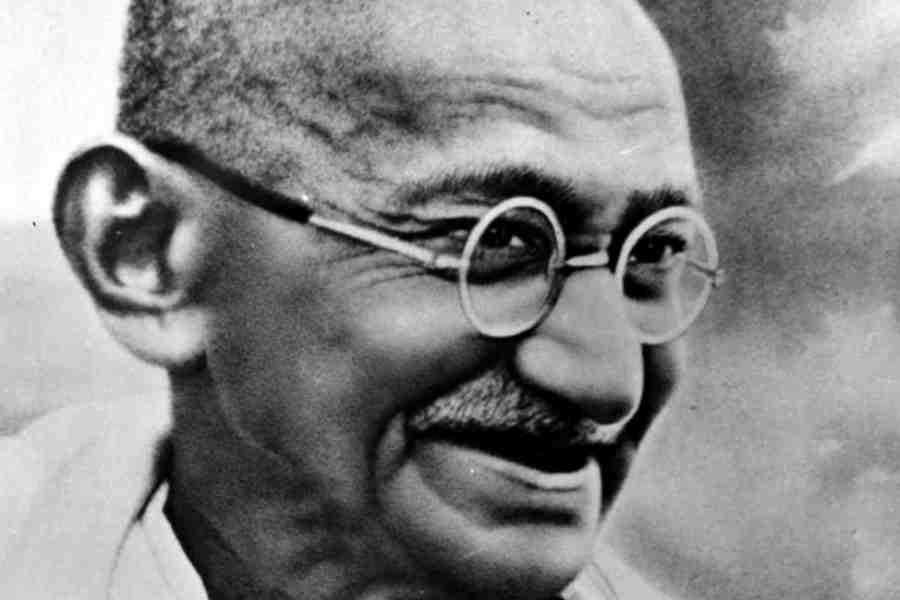In the time of “Modi ki guarantee”, it is time to tell and retell our classrooms about the Mahatma’s Guarantee.
“Our country is going through a very bad time. Everywhere around us, we see division and discrimination. Take the example of Nuh in Haryana. The Hindus, Muslims and Sikhs from that region had all joined the Azad Hind Fauj. It was on Mahatma Gandhi’s assurance that the Muslims of that region stayed back in India, instead of migrating to Pakistan. We have failed to keep the promise made by Gandhiji,” historian Sugata Bose told an audience that included many youngsters on Thursday.
Sugata Bose, Gardiner Professor of History at Harvard University and the grand-nephew of Netaji Subhas Chandra Bose, was the keynote speaker at the convocation of Deeniyat Muallima College, a community-based institution in Howrah that aims to empower Muslim women. The topic of his speech was “Netaji’s ideals of equality and unity”.
Six people, including two home guards and a cleric, were killed in the clashes that erupted in Muslim-dominated Nuh on July 31 and later spread to nearby Gurgaon. Hindutva groups such as the Bajrang Dal and the Vishwa Hindu Parishad have been accused of provoking and engineering the violence during a religious procession.
This Independence Day, Prime Minister Narendra Modi declared that “it is Modi’s guarantee that India will be among the top three economies in the world in the next five years”.
On Thursday, at the newly opened Dhana Dhanya auditorium in Alipore, Sugata Bose took questions from the audience, made up mostly of students and teachers, after the speech. A bulk of them were female students.
“We, Muslims, lag behind when it comes to public representation and jobs. Why is this? Is this because our culture is different? Is this because we wear different clothes?” asked a student of Deeniyat Muallima College.
Sugata Bose replied: “The choice of attire is a personal right. What a person wears can be decided only by that person. Nobody else has the right to dictate what you will wear.”’
The audience broke into applause.
“Tagore had said that differences had to be respected to preserve unity. Unity must not be confused with uniformity,” Sugata Bose added.
Much of his hour-long speech, accompanied by rare pictures from the family archive, dwelled on the Muslim comrades of Netaji.
He talked about Abid Hasan, Netaji’s only Indian companion on a submarine which sailed from Europe to Asia in 90 days; Mohammad Zaman Kiani, the commander of the First Division of the Azad Hind Fauj; Miyan Akbar Shah, freedom fighter from the Northwest Frontier Province and Netaji’s aide in his “great escape” from Calcutta; and Habibur Rahman, his companion in what is said to be his final plane journey.
“Subhas Chandra Bose was surrounded by people from all communities. His core team had Hindus, Muslims, Sikhs and Christians and he never distinguished between them. These ideals of religious amity and equality for all are especially relevant today,” Sugata Bose said.
The programme was co-hosted by Know Your Neighbour, a campaign that encourages interactions between communities to build communal amity.
Nearly a century ago, Netaji walked the same path.
Sugata Bose spoke of“cultural intimacy”, a term coined by Netaji at a political conference in Pune in May 1928.
“He gave a famous speech where he first spoke of cultural intimacy. He said people of different communities in India lived too far from one another. He stressed the need to get more familiarised with the culture of other communities. This cultural intimacy was the basic principle of Netaji’s life,” said Sugata Bose.
As distant as it may seem now, he also spoke of a united Manipur.
On March 18, 1944, the Azad Hind Fauj crossed the Indo-Burma frontier as they marched towards mainland India.
“They were headed towards Imphal. The first division was commanded by Mohammad Zaman Kiani. The first division had multiple brigades, the Gandhi Brigade, the (Jawaharlal) Nehru Brigade, the (Maulana Abul Kalam) Azad Brigade and Subhas Brigade. Gandhi Brigade, which fought in Imphal, was led by Inayat Kiani.
“I have met all these people later. The Azad Hind Fauj included people from all communities. When the Azad Hind Fauj entered India, who supported them? The common people of Manipur and Nagaland came forward to help the soldiers. Meteis, Kukis and Nagas, all came forward. There was no division among them,” said Sugata Bose.
“Many years later, in 1972, my parents visited the freedom fighters in Manipur. When the Azad Hind Fauj was forced to retreat from Imphal, 17 Manipuris went back with the soldiers. They reached Rangoon and met Netaji. The group included 15 men and two women. There were Meiteis, Kukis, Hindus and Muslims,” he added.











